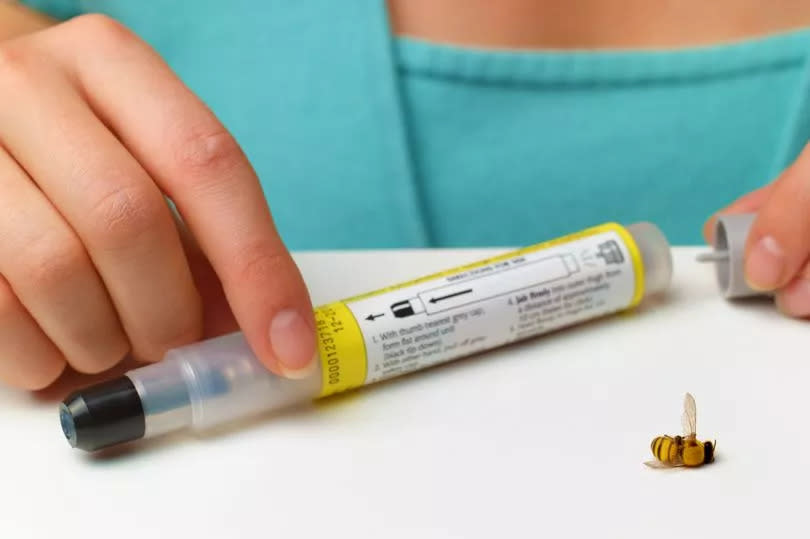Red flags of deadly allergy that left Love Island star in hospital

People are being warned to clue themselves up on the symptoms of anaphylaxis after news emerged this week that a celebrity faced hospitalisation. Taking to Instagram, Love Island star Jack Fowler shared with his over one million followers that he was taken to hospital after suffering from a nut allergy.
It occurred when he was on a flight to Dubai and was offered food. Despite allegedly warning the crew of his severe nut allergy twice, he was served a cashew curry that immediately "closed up" his throat, leaving him with "the real possibility of dying on the plane", he said, adding that "breathing became extremely difficult".
The 28-year-old posted a video of him injecting himself with an EpiPen. He also shared a video and photos of him wearing an oxygen mask as well as in hospital and the menu showing the curry with nuts.
Hoping to warn others of the severity of a nut allergy, he is urging everyone to understand just how serious food allergies can be. So what is Anaphylaxis, what are the symptoms and when should you call 999? Here is what you should know.
What is anaphylaxis and what causes it?

Anaphylaxis is a severe, rapid allergic reaction that can be triggered by food, medications, or insect stings and is potentially life-threatening. Foods such as nuts, cows' milk, eggs, fish or sesame seeds can cause this as well as latex, certain medicines and insect stings such as wasp and bee stings - to name a few.
What are the symptoms of anaphylaxis?
The NHS warns that symptoms of anaphylaxis happen very quickly. They often start within minutes of coming into contact with something you're allergic to, such as a food, medicine or insect sting.
Symptoms include:
swelling of your throat and tongue
difficulty breathing or breathing very fast
difficulty swallowing, tightness in your throat or a hoarse voice
wheezing, coughing or noisy breathing
feeling tired or confused
feeling faint, dizzy or fainting
skin that feels cold to the touch
blue, grey or pale skin, lips or tongue – if you have brown or black skin, this may be easier to see on the palms of your hands or soles of your feet
You may also have a rash that's swollen, raised or itchy.
Anaphylaxis - when should you call 999?

The NHS warns that there are certain signs of a serious allergic reaction you need to be aware of. If you experience them, you need to call 99 straight away as you may need immediate treatment in hospital.
You should call 999 if:
your lips, mouth, throat or tongue suddenly become swollen
you're breathing very fast or struggling to breathe (you may become very wheezy or feel like you're choking or gasping for air)
your throat feels tight or you're struggling to swallow
your skin, tongue or lips turn blue, grey or pale (if you have black or brown skin, this may be easier to see on the palms of your hands or soles of your feet)
you suddenly become very confused, drowsy or dizzy
someone faints and cannot be woken up
a child is limp, floppy or not responding like they normally do (their head may fall to the side, backwards or forwards, or they may find it difficult to lift their head or focus on your face)
You or the person who's unwell may also have a rash that's swollen, raised or itchy.
What to do if you have anaphylaxis
The NHS warns people not to stand or walk - even if you feel better. They also urge people to follow these steps if you think you or someone you're with is having an anaphylactic reaction.
Use an adrenaline auto-injector (such as an EpiPen) if you have one – instructions are included on the side of the injector.
Call 999 for an ambulance and say that you think you're having an anaphylactic reaction.
Lie down – you can raise your legs, and if you're struggling to breathe, raise your shoulders or sit up slowly (if you're pregnant, lie on your left side).
If you have been stung by an insect, try to remove the sting if it's still in the skin.
If your symptoms have not improved after 5 minutes, use a 2nd adrenaline auto-injector.
You can read more here.

 Yahoo News
Yahoo News 
